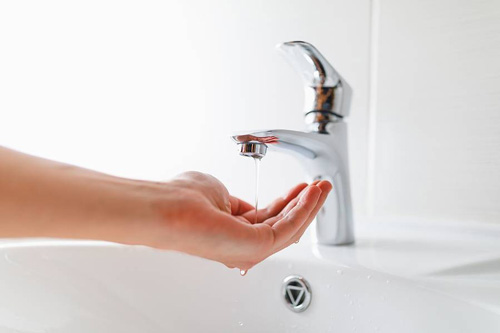Water pressure, a seemingly simple force that powers our showers, faucets, and appliances, can be a fickle companion. If you’ve ever experienced a sudden drop in pressure while washing dishes or a surprising surge during your morning shower, you’re not alone. Understanding the complex web of factors that contribute to changes in water pressure is key to maintaining a steady flow throughout your home.
1. Water Supply Woes
The journey of water to your home begins in the municipal supply system. During peak hours, when everyone is using water simultaneously, the demand on the system increases. This surge in demand can lead to a temporary decrease in water pressure. Similarly, planned maintenance or unexpected pipe repairs in your area can disrupt the usual flow, causing pressure variations.
2. Leaky Pipes
Leaky pipes are like the silent saboteurs of water pressure. Even a small leak can result in a significant loss of pressure as water escapes through tiny cracks or holes. Regular inspections of your plumbing system can help identify and fix these leaks, ensuring that the water reaches its intended destination with minimal loss.

3. Accumulation of Sediment
As water travels through your plumbing system, it carries along minerals and debris. Over time, these particles can accumulate in the pipes, forming a layer of sediment. This buildup acts as a bottleneck, restricting the smooth flow of water and causing fluctuations in pressure. Older plumbing systems are particularly susceptible, making regular pipe cleaning or replacement an essential maintenance task.
4. Malfunctioning Water Pressure Regulator
Most homes are equipped with a water pressure regulator to maintain a consistent flow. However, if this regulator malfunctions or is incorrectly set, it can lead to pressure inconsistencies. A professional assessment of your regulator can pinpoint any issues and restore balance to your water system.
5. Pressure Relief Valve
Beyond just leaks in pipes, the pressure relief valve, a crucial component in many plumbing systems, can also contribute to pressure problems. These valves are designed to release excess pressure, but if they are faulty or set at the wrong pressure level, they can disrupt the delicate equilibrium of your plumbing system.
6. Water Heater Problems
Your water heater is not exempt from the water pressure saga. Sediment buildup in the heater tank can hinder its performance, affecting the pressure of the hot water supply. Regular maintenance practices, such as flushing the tank, can alleviate this issue and ensure a consistent flow of hot water.
7. Closed Valves
In the complexity of plumbing systems, sometimes the solution is surprisingly simple. Closed valves leading to appliances and fixtures can be the culprits behind low water pressure. A thorough check to ensure all relevant valves are fully open can often be the remedy needed.
8. Issues with your Water Softener
For homes equipped with water softeners, malfunctions in these systems can contribute to pressure problems. Ensuring that your water softener is functioning correctly and is appropriately sized for your household’s needs is crucial for maintaining optimal water pressure.
Prevent Water Pressure Disruptions with Atlantic Blue Water Services
The ebb and flow of water pressure in your home are influenced by a multitude of factors. From the municipal supply system to the intricate network of pipes within your walls, each component plays a role in maintaining a steady stream of water. If you find yourself grappling with persistent pressure problems, enlisting the expertise of a professional plumber can provide valuable insights and solutions. By unraveling the mysteries behind water pressure changes, you empower yourself to take proactive measures, ensuring a reliable and consistent water supply for your home.
By being proactive, you can prevent disruptions to your daily routine and maintain a robust plumbing system. For trustworthy water services, rely on Atlantic Blue Water Services. We’re committed to providing clean water and offer advanced well water tests. Contact us at 410-840-2583 for a healthier water supply, enhancing your well-being and overall happiness.
